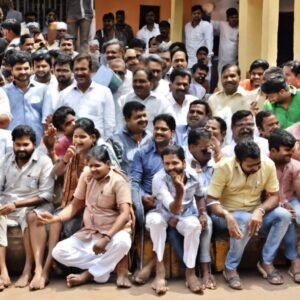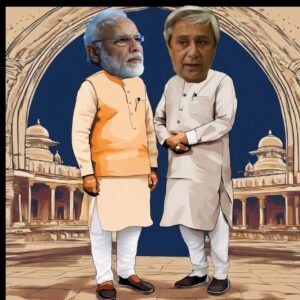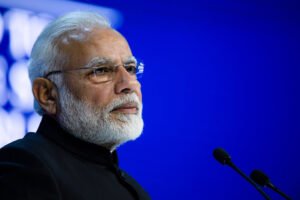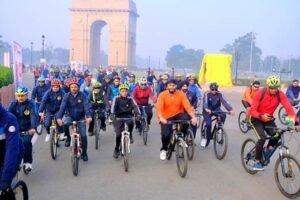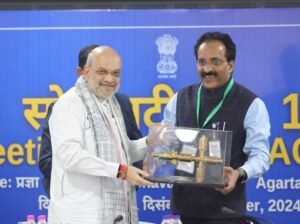Peaceful Polling in 13 States/UTs in Second Phase of General Elections
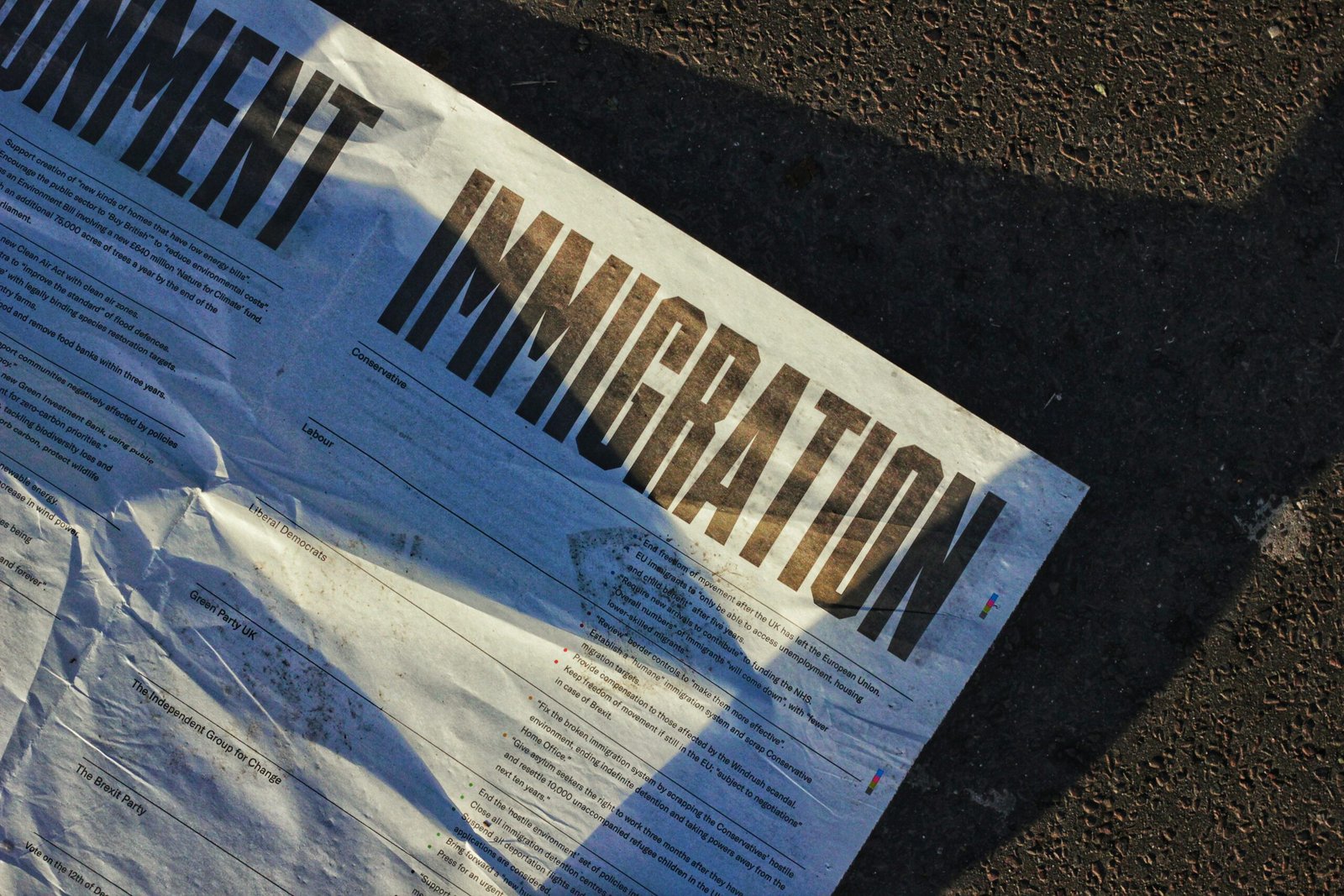
Photo by Metin Ozer on Unsplash
In the second phase of the general elections, citizens exercised their democratic right to vote in 13 states/UTs, including Maharashtra, Tamil Nadu, West Bengal, Uttar Pradesh, Gujarat, and Bihar. The polling stations were set up in various locations, ranging from urban centers to remote villages nestled in the hills.
One of the heartening aspects of this phase was the diverse participation of voters. From newlyweds who cast their votes together as a symbol of their commitment to democracy, to senior citizens who have witnessed the evolution of the electoral process over the years, people from all walks of life came forward to make their voices heard.
Notably, tribal communities showed great enthusiasm in participating in the electoral process. They traveled long distances, often crossing rivers and traversing treacherous terrains, to reach their designated polling stations. Their determination to exercise their voting rights was a testament to their belief in the power of democracy.
Furthermore, the participation of professionals from the IT sector and individuals with advanced degrees, such as PhDs, highlighted the importance of informed decision-making in shaping the future of the nation. These individuals, armed with knowledge and expertise, recognized the significance of their vote in contributing to the development and progress of the country.
Women, too, played a crucial role in this phase of the general elections. With their unwavering commitment to democracy, they stood shoulder to shoulder with their male counterparts, emphasizing the importance of gender equality and inclusivity in the electoral process.
Youngsters, the future torchbearers of the nation, also enthusiastically participated in the voting process. They recognized that their votes would shape the policies and governance that would define their lives in the years to come. Their active involvement served as a reminder that the responsibility of building a better tomorrow rests on the shoulders of the youth.
Overall, the second phase of the general elections witnessed a peaceful and smooth polling process in all the states/UTs. The Election Commission of India’s meticulous planning, coordination, and implementation ensured that voters could exercise their franchise without any hindrance. The commitment of the election officials, security personnel, and volunteers in ensuring a fair and transparent election was commendable.
With the completion of phase 2, a total of 14 states/UTs have now concluded their voting process. As the general elections progress, the nation eagerly awaits the results that will shape the destiny of the country for the next five years.
The ECI’s commitment to efficient monitoring and security measures was evident throughout the polling process. Under the leadership of Chief Election Commissioner (CEC) Shri Rajiv Kumar, along with Election Commissioners Shri Gayness Kumar and Shri Sukhbir Singh Sandhu, the ECI closely monitored the proceedings from the beginning of the day. This level of oversight ensured that any issues or irregularities could be addressed promptly.
To maintain law and order and create a safe environment for voters, stringent security measures were implemented. The presence of security personnel at polling stations helped deter any potential acts of intimidation or violence. This allowed voters to cast their votes freely, without fear or coercion.
Transparency and accountability were also prioritized through the use of webcasting in over 1 lakh polling stations. This technology enabled the live streaming of the polling process, ensuring that it was accessible to the public and allowing for real-time monitoring. By making the electoral process more transparent, the ECI aimed to build trust and confidence among voters.
Recognizing the challenges posed by the hot weather conditions, the ECI took special measures to ensure the comfort of voters. In constituencies such as Bihar’s Banka, Madhapur, Khajuria, and Munger, where the temperatures were particularly high, the polling time was extended until 6 pm. This extension provided voters with more flexibility and allowed them to cast their votes at a time that suited them best.
Moreover, the ECI made additional arrangements to combat the heat. Canopies, known as sham iyanas, were set up at polling stations to provide shade and relief from the scorching sun. Drinking water facilities were also made available to keep voters hydrated throughout the process. Medical kits were on hand to address any health emergencies, and fans were installed to provide some respite from the heat. These thoughtful arrangements demonstrated the ECI’s commitment to ensuring that voters could exercise their democratic right comfortably.
By implementing efficient monitoring and security measures, the ECI successfully conducted the elections with utmost professionalism and integrity. This dedication to upholding the democratic process and creating a conducive environment for voters is a testament to the ECI’s commitment to democracy and fair elections.
Celebrating the “Chunav Ka Parv”
Both polling officials and voters embraced the spirit of the “Chunav Ka Parv” (festival of elections) by coming in their traditional attire. In Sikar, Rajasthan, women voters braved the heat and proudly wore their traditional clothing while casting their votes. Similarly, in the Varuna constituency in Karnataka, polling staff dressed in traditional attire welcomed the voters, adding a touch of cultural significance to the electoral process.
Moreover, in phase 2, voters from 46 villages in Bastar and Kanker parliamentary constituencies in Chhattisgarh had the opportunity to cast their votes in polling booths set up in their own villages for the first time in a Lok Sabha election. This initiative aimed to make voting more accessible and convenient for the villagers. Overall, 102 new polling stations were set up in these constituencies, further facilitating the voting process.
The Election Commission made special efforts to ensure the participation of particularly vulnerable groups, such as tribal communities, the elderly, young and first-time voters, women, and transgenders. These efforts aimed to create an inclusive and representative electoral process.
Recognizing the importance of every vote, the Election Commission also implemented measures to encourage voter turnout. In collaboration with various community organizations and NGOs, voter awareness campaigns were conducted across the country. These campaigns included door-to-door visits, street plays, and interactive sessions to educate citizens about the significance of their vote and the electoral process.
Additionally, the Election Commission introduced several technological advancements to streamline the voting process. Electronic Voting Machines (EVMs) were used extensively, ensuring a faster and more efficient counting of votes. Voter registration was made easier through online portals and mobile applications, reducing the time and effort required to enroll in the electoral roll.
Furthermore, to accommodate the needs of differently-abled voters, polling booths were made accessible with ramps and other facilities. Braille-enabled EVMs were also provided for visually impaired voters, enabling them to cast their votes independently and confidentially.
With the aim of promoting transparency and fairness in the electoral process, the Election Commission implemented strict guidelines to prevent electoral malpractices. Surveillance cameras were installed at critical locations to monitor activities and deter any attempts of voter intimidation or bribery. Special teams of election observers were deployed to ensure that the elections were conducted in a free and fair manner.
Overall, the “Chunav Ka Parv” witnessed not only a celebration of democracy but also a commitment to inclusivity, accessibility, and transparency. Through the collective efforts of the Election Commission, polling officials, and voters, the electoral process truly became a festival of unity and empowerment.
As the second phase of the general elections progressed, it became evident that the enthusiasm and determination of the voters were not limited to just the common citizens. Even cricketing superstars like Anil Kumble, Rahul Dravid, and Javagal Srinath recognized the importance of participation in the electoral process. These legendary players, who have brought glory to the nation on the cricket field, took time out of their busy schedules to exercise their democratic right.
In Bangalore, the city known as the Silicon Valley of India, Anil Kumble, Rahul Dravid, and Javagal Srinath were seen voting at different polling stations. They stood in line with the common citizens, patiently waiting for their turn to cast their votes. And when they emerged from the polling booths, they proudly posed with their inked fingers, carrying the message of the significance of voting to the youth.
Their actions spoke volumes about the responsibility that comes with fame and influence. By actively participating in the electoral process, these cricketing superstars not only set an example for their fans but also encouraged the youth to exercise their right to vote. They understood that their influence extended beyond the boundaries of the cricket field and that they had the power to inspire change.
Meanwhile, in a remote area of the Dahlia assembly segment in Tripura, the voters from the Raimi Valley faced unique challenges to exercise their franchise. They had to travel to the polling stations through boats, navigating through the serene waters of the valley. Despite the difficulties, these voters demonstrated their unwavering commitment to democracy by actively participating in the electoral process.
The sight of these determined voters braving the waters to cast their votes was a testament to the resilience of the Indian democracy. It showcased the indomitable spirit of the people, who were willing to go to great lengths to have their voices heard. Their actions reminded the nation that democracy is not just a right but a privilege that should be cherished and protected.
Overall, the second phase of the general elections in 13 states/UTs witnessed peaceful polling, with a significant turnout of approximately 60.96% as of 7 pm. The Election Commission’s meticulous planning and execution, along with the enthusiasm and determination of the voters, contributed to the successful conduct of the elections.
